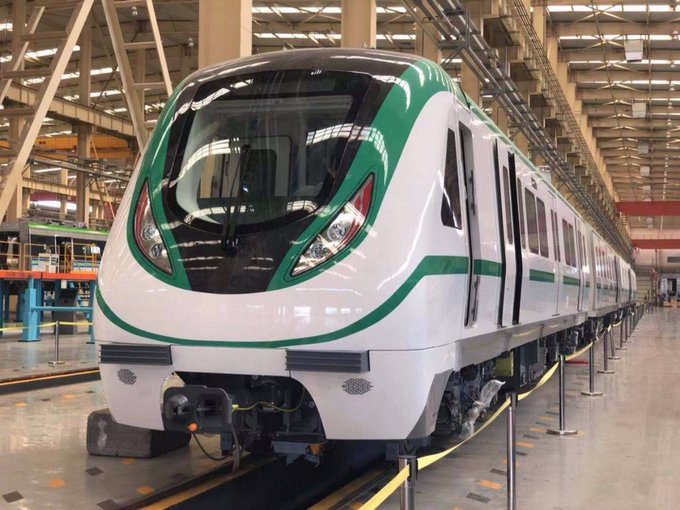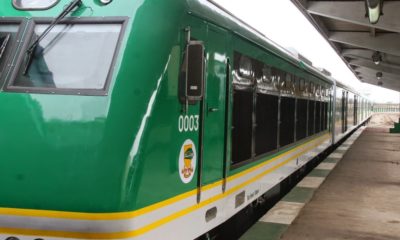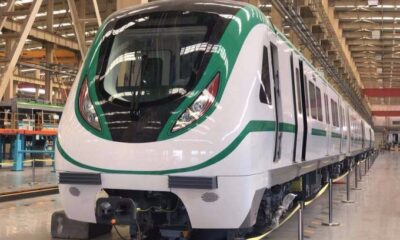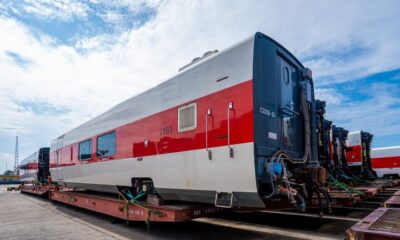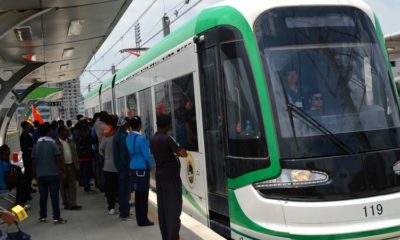Despite the Nigerian Railway Corporation (NRC) saying the newly launched Lagos-Ibadan train service provides air-condition and other modern facilities in all the three categories, the Economy, Business and First Class, Nigerians have refused to patronise the luxury train service.
According to the available details, only one passenger turned up for the first trip from Ibadan to Lagos on Monday when the train officially commenced operations.
It should be recalled that Nigerians complained about the exorbitant fare of the Lagos-Ibadan train service last weeek when the minister of Transportation, Rotimi Amaechi announced the fare of the three different seat categories; N3,000 for the Economy; N5,000 for the Business and N6,000 for First.
Many Nigerians said the fare is too high and did not favour the masses as anticipated during the project development.
It was reported that the inaugural train service departed from Ibadan, the state capital of Oyo State with only one passenger. Departure time was around 8:20 am and it arrived at Lagos a 10:40 am with less than five passengers on board throughout the whole journey.
A source on the inaugural trip said, “We had one passenger from Ibadan to Lagos, and this is not unusual. The service is just commencing. I’m sure as time goes on, the patronage will improve. Don’t forget again that we are approaching Christmas and New Year when patronage is expected to drastically improve”.
Jerry Oche, Lagos Railway District Manager said, “The Lagos Ibadan standard gauge train affords members of the public the opportunity to leave Ibadan for Lagos at 8 a.m and return at 4 p.m the same day”.
He also asserts that the Lagos to Ibadan Journey lasted for two and a half hours.
Jerry said, ” it makes more sense, going by recent reports of traffic gridlock that has characterised Lagos-Ibadan road, due to ongoing road construction along that axis”.
He further described the rail operation as a new dawn of railway modernisation in Nigerian and urge Nigerians to embrace the new train service.
Jerry Oche also added that the train operations will observe all the major rules and regulations that are in compliance with COVID-19 protocol. Hence the use of nose masks and hand-washing must be strictly adhered to by all passengers.
NRC deployed only one Diesel Multiple Unit (DMU) to kick-start the operation and said the train service would operate one schedule until patronage picks up.
The train left with five passengers from Lagos to Ibadan at 4.10 p.m.

 Forex2 weeks ago
Forex2 weeks ago


 Naira2 weeks ago
Naira2 weeks ago
 Billionaire Watch2 weeks ago
Billionaire Watch2 weeks ago




 Naira2 weeks ago
Naira2 weeks ago




 Naira2 weeks ago
Naira2 weeks ago




 Naira4 weeks ago
Naira4 weeks ago


 Naira6 days ago
Naira6 days ago
 Banking Sector4 weeks ago
Banking Sector4 weeks ago
